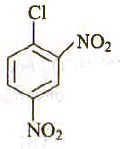Which will undergo cationic hydrolysis ?
NaCI
The correct Answer is:C
To determine which compound will undergo cationic hydrolysis, we need to analyze the nature of the cations present in each of the given compounds. Cationic hydrolysis occurs when the cation is derived from a weak base. Here’s a step-by-step solution:
Step 1: Identify the Compounds
The given options are:
1. NaCl
2. CH3COONa
3. NH4(SO4)2
4. Na2CO3
Step 2: Analyze Each Compound
- NaCl: Sodium (Na⁺) is derived from NaOH, which is a strong base. Chloride (Cl⁻) comes from HCl, which is a strong acid. Therefore, NaCl does not undergo hydrolysis.
- CH3COONa: Sodium (Na⁺) is from NaOH (strong base), and acetate (CH3COO⁻) is from acetic acid (weak acid). The cation Na⁺ does not undergo hydrolysis, but the anion CH3COO⁻ can undergo hydrolysis. However, we are focusing on cationic hydrolysis, so this does not qualify.
- NH4(SO4)2: The ammonium ion (NH4⁺) is derived from ammonia (NH3), which is a weak base. Therefore, NH4⁺ can undergo hydrolysis, making this compound capable of cationic hydrolysis.
- Na2CO3: Sodium (Na⁺) is from NaOH (strong base), and carbonate (CO3²⁻) is from carbonic acid (H2CO3), which is a weak acid. The cation Na⁺ does not undergo hydrolysis.
Step 3: Conclusion
From the analysis, the only compound that contains a cation derived from a weak base and can undergo cationic hydrolysis is NH4(SO4)2.
Final Answer
C. NH4(SO4)2 will undergo cationic hydrolysis.
---
The given options are:
1. NaCl
2. CH3COONa
3. NH4(SO4)2
4. Na2CO3
- NaCl: Sodium (Na⁺) is derived from NaOH, which is a strong base. Chloride (Cl⁻) comes from HCl, which is a strong acid. Therefore, NaCl does not undergo hydrolysis.
From the analysis, the only compound that contains a cation derived from a weak base and can undergo cationic hydrolysis is NH4(SO4)2.
C. NH4(SO4)2 will undergo cationic hydrolysis.
Topper's Solved these Questions
- EQUILIBRIUMBook:AAKASH INSTITUTE ENGLISHChapter:EQUILIBRIUMExercise:ASSIGNMENT (SECTION -B)
Explore 35 Videos
- EQUILIBRIUMBook:AAKASH INSTITUTE ENGLISHChapter:EQUILIBRIUMExercise:ASSIGNMENT (SECTION -C)
Explore 89 Videos
- EQUILIBRIUMBook:AAKASH INSTITUTE ENGLISHChapter:EQUILIBRIUMExercise:EXERCISE
Explore 50 Videos
- ENVIRONMENTAL CHEMISTRYBook:AAKASH INSTITUTE ENGLISHChapter:ENVIRONMENTAL CHEMISTRYExercise:ASSIGNMENT (SECTION-D) (Assertion - Reason Type Questions)
Explore 4 Videos
- GENERAL PRINCIPLES AND PROCESSES OF ISOLATION OF ELEMENTSBook:AAKASH INSTITUTE ENGLISHChapter:GENERAL PRINCIPLES AND PROCESSES OF ISOLATION OF ELEMENTSExercise:Assignment (Section-D) Assertion-Reason Type Question
Explore 15 Videos
Similar Questions
Knowledge Check
Which of the following would undergo most rapid hydrolysis with aqueous NaOH to furnish the corresponding hydroxy derivatives?
A B
B C
C D
D
Which one yields protein on hydrolysis ?
View SolutionAssertion: An aqueous solution of FeCl3 is acidic.
Reason: It is due to cationic hydrolysis of Fe3+ ion to give Fe(OH)3 and H⊕ ions.
View SolutionWhich salt undergoes hydrolysis?
View SolutionIn which of the following salts only cationic hydrolysis is involved ?
View SolutionWhich of the following salts will not undergo hydrolysis in water?
View SolutionWhich of the following halide undergoes in hydrolysis via SN1 reaction?
View SolutionAmong the following which salt do not undergo hydrolysis?
View Solution